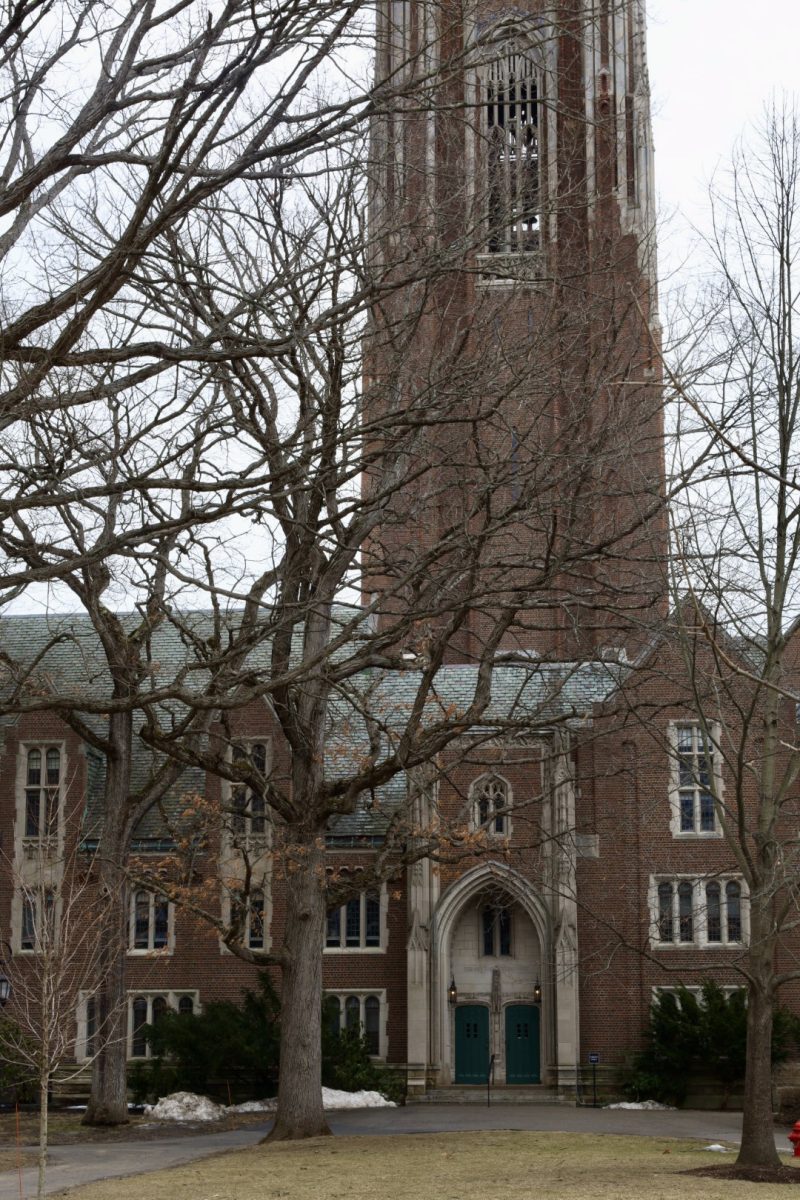Members of the Wellesley community gathered last Friday in remembrance of the lives lost on Feb. 10 at the University of North Carolina Chapel Hill’s campus (UNC Chapel Hill). The three victims were 23-year-old Deah Shaddy Barakat, his 21-year-old wife Yusor Mohammad Abu-Salha and her 19-year-old sister Razan Mohammad Abu-Salha. The College students were found dead in Yusor Mohammed Barakat and Abu-Salha’s home. Their neighbor, Craig Stephen Hicks, is being charged with three counts of first-degree murder.
The vigil began with an introduction by Interim Dean of Religious and Spiritual Life Annabel Beerel, who began the ceremony by reminding everyone that a vigil was a special time for reflection and “sacred silence.” As students gathered in the Multifaith Center, they had a chance to say a few words or place flowers in a vase of water, which was an alternative to traditional candle-lighting.
Wellesley’s Muslim student group, Al-Muslimat (ALM) helped organize the gathering along with the Office of Spiritual and Religious Life, who work to support the Muslim community on campus and raise awareness in Wellesley community about Islam. They organized this event because they felt compelled to give the community a platform to express their emotions and gather in solidarity.
“[We organized the vigil] not only to help students experiencing grief but also to spread awareness. We wanted to let the campus know that this is something that happened. The media coverage [of the shooting] was not detailed or fast enough,” ALM President Tahani Chaudhry ’16 said.
The UNC Chapel Hill victims were known to their community as bright, young students who always strived to help others. Barakat was a dental student who had set up a fund to raise money for a trip to Turkey to help Syrian refugees with dental care. At the time of his death, he had only raised $5,000 of his $20,000 goal. As of today, he has raised over $480,000.
The vigil attracted a diverse group of people from Muslim students to Wellesley faculty. There were around 40 community members in attendance. After the vigil, Al-Muslimat felt that a lot more people were aware of what happened, especially because the event was circulated on Facebook.
The atmosphere at the vigil was filled with emotion as students shared their thoughts or took moments of silence.
“I think it was powerful to hear from staff and students who aren’t Muslim,” Vice President of ALM Nusrat Jahan ’17 said.
At the end of the official service, attendees were offered the opportunity to write letters to the victim’s families.
“All of it was very emotional. I think I was especially moved after the vigil when I saw people writing letters. It was really touching to see how many people wanted to reach out to the families of the victims,” Chaudhry said.
Beerel advises students who are looking for support from the community to garner listeners on live forums and to share their concerns and desires. She added that timing is very important. Sometimes people want to listen, but they may be preoccupied and won’t provide the empathy needed. Open dialogue promotes a sense of community and understanding, whether the person seeking support is Muslim, Jewish, African American, Asian or a member of another minority group. These issues are issues of the human condition and are not unique to one particular group.
“Many of [us] have the same issues: loneliness, being misunderstood, disrespected or unappreciated, having prejudice against [a group]. As I speak to people in my path, we all hunger for the same things. They essentially affect the same emotions — we’re all in this together,” Beerel said.
Community gathering plays a large role in the promotion of healthy dialogue. When in a room together, we are invited to step outside of ourselves, and we open ourselves up more. We also see all the resources that are available to us. At ceremonies such as a vigil, people are reminded of the community that surrounds them.
“When the community is together in a positive way, I believe they rise to a higher reflection of themselves,” Beerel said.
Creating the right healthy environment for sharing, however, can sometimes be difficult. This is when leadership plays a role in ensuring that the right platform for discussion is laid out.
When asked why they waited so long after the shooting to organize a vigil, Al-Muslimat responded by saying they wanted to be respectful towards the Wellesley community and wait until after An Ton’s memorial service.
ALM is organizing an Understanding Islam Week which will run from March 4-6. Events for the week include open mic nights, a community dinner and more and seeks to spread awareness about Islam and Muslims in the community.
Nasreen Al-Qadi ’18 is an editor for the News section who enjoys reading about all kinds of new tech in her free time and is pursuing a Biology major. She is best reached at [email protected].





